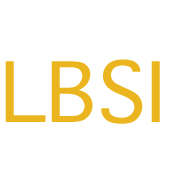
They’re going to ask you about your experience during the job interview, they’ll ask you why you want this job in particular and they will ask you to describe yourself. Those questions are guaranteed.
Don’t wing it
With everything else you have to think about, you might be tempted to ignore the question about yourself and just wing it when you get there – after all you’ve lived with yourself your whole life. You that should be the easiest question to answer. That’s about the worst thing you can do. If you’re not prepared you’re as likely as not to sound like a robot rattling off a list of attributes that sounds like just about every other robot going through a similar list – I’m hard working, punctual and I’m good with numbers. Or you might go off on a tangent, without explaining exactly how this ability you have to tame numbers saved your last employer thousands of dollars over the past three months.
Make a list
Do yourself a favor and make a list of short descriptive sentences you would use to express what you’re like both personally and professionally. This is just for you now. Show off your skills, what people like about you, what they’re impressed by. How those skills made a difference in other people’s lives. Now find the adjectives that reflect those sentences.
Meticulous be an example. An adjective like meticulous indicates an attention to detail to the hiring manager. That you care about the details and are not one to sit back and let someone else do all the heavy lifting. Give an example of how your meticulousness caught a small mistake before it became a big one or ensured that the job got done right -the first time.
Have five examples ready
Come to the interview prepared with five strong adjectives that describe you, the impact you have had in other workplaces and what you can bring to this new one. Great examples are team player, imaginative and driven.
The last thing you want to happen is to have all great ways of describing yourself pop into your head on the trip home. By taking this question seriously before every stepping into the interview you can ensure the interviewer sees you as the fighter you are.








